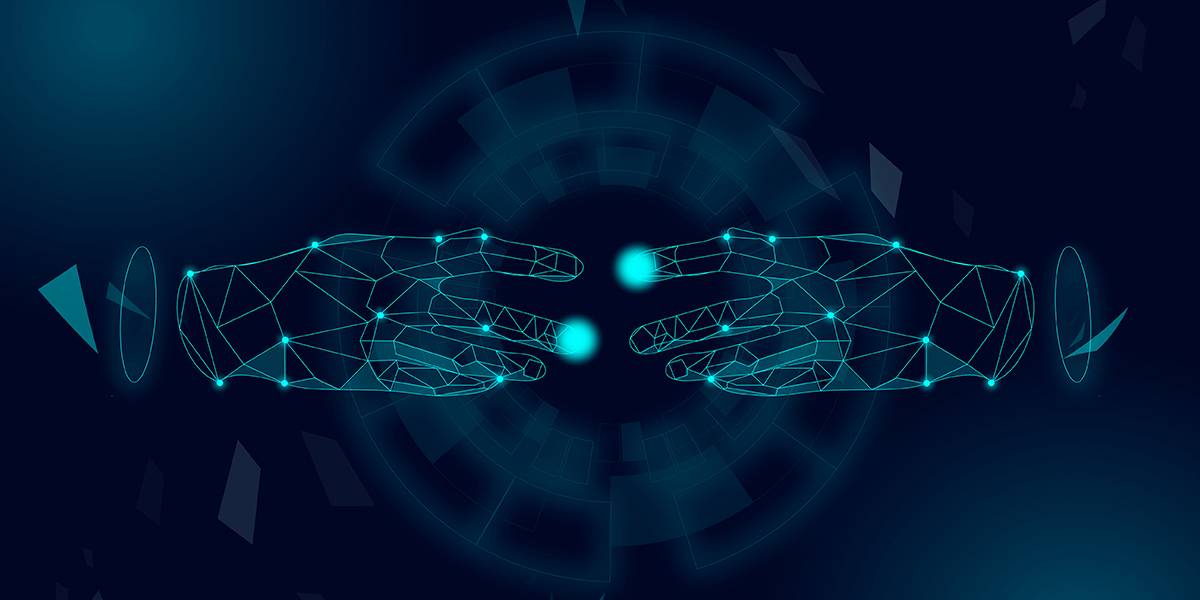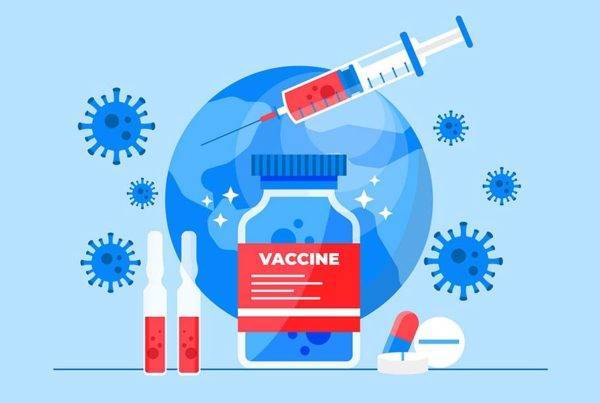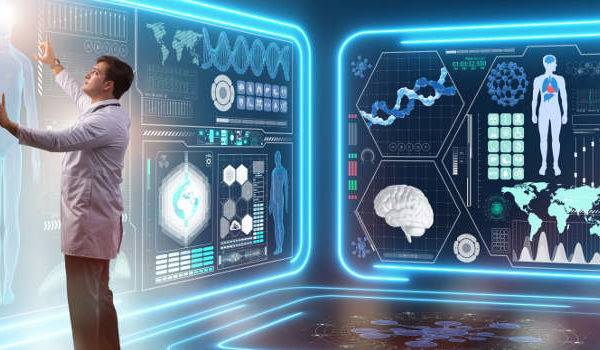Artificial Intelligence (AI) In Marketing
AI, better known as Artificial Intelligence, is the branch of computer science that emphasizes the development of machines that can display intelligence and thought-process like natural intelligence found in humans. AI can be used to recognise speech, provide resolution, learn and plan.
Pharmaceutical marketing companies can benefit from Artificial Intelligence by creating opportunities to boost sales and better implement a marketing strategy for pharmaceutical products. AI can crunch marketing data to improve sales, customer experience, personalization, and targeting. Rule-based algorithms provide insights and when used correctly in digital marketing, it can help brands connect to the right audience. enable drive traffic, gain new customers and help retain the old ones. It can also guide marketers as to what kind of messaging, tactics, and context to use to best motivate customer engagement with the brand. It can help marketers tailor their communications more precisely and deliver them in a more desirable manner.
When used for digital marketing in the pharmaceutical industry, Artificial Intelligence can help pharmaceutical marketing companies target the end-user precisely, understand their motivations, behaviours, and patterns to personalise experiences, improve communication and engagement with stakeholders including patients and caregivers so they can focus on managing health effectively. AI also helps increase the productivity of medical representatives and helps pharmaceutical advertising agencies to develop marketing strategies and pharma advertisements for their audience and better manage relationships through AI-based CRM systems.
The healthcare AI market is likely to experience a compound annual growth rate of 40% by 2021. -Frost & Sullivan Report. Artificial Intelligence is all set to expand the healthcare industry to another level. Let’s take a peek into the future of the healthcare industry.
The application of Artificial Intelligence (AI) and the use of complex-rule based algorithms can be used in the field of healthcare to mimic human intelligence in the analysis of complicated medical data. That too without direct human input. This is known as a machine learning process.
What distinguishes AI technology from traditional technologies in health care is the ability to gain information, process it and give a well-defined output to the end-user. AI does this through machine learning algorithms. These algorithms can recognize patterns in behaviour and create their own reasoning. The efficacy of any algorithm lies in testing it numerous times.
How AI Helps
The health-related AI applications are created with an aim to analyse, understand, interpret, and predict. AI in healthcare helps understand the relationship between prevention or treatment to predict patient outcomes. The programs are developed and applied to clinical practices such as diagnostic process, treatment protocol development, drug development, personalized medicine, and monitoring patients. What else could AI do?
-Faster Data Processing
Artificial Intelligence improves computing power resulting in faster data collection and data processing. AI beats humans in the ability to gather, understand, assess and make sense of a huge number of unstructured and structured data, especially text, numbers and images; faster, quicker and precise. This could efficiently optimize the clinical process like answering patients queries, paper-work, diagnosis, etc., leaving doctors to solve more critical cases. Diagnosis of patients is an important aspect of healthcare and AI could speed up the time taken humans to detect and identify the diseases. Due to its quick-processing abilities, AI can better predict, diagnose and prescribe remedies to patients.
-Increased Volume Of Health-Related Data
AI creates an opportunity for huge amounts of health-related data, structured or otherwise to be collected from personal or healthcare devices which could help continuous monitoring of patients and process the data to predict early warnings. This rapid increase in data volume is due to advancements in big data analytics tools and medical imaging, as well as the increasing availability of real-time data to help with clinical decision-making. The rise of chatbots, virtual assistants and wearable devices will also increase the volume of healthcare data. AI built into diagnostic equipments helps patients to collect and upload their health data to the cloud or a centralised data house to assess the patient’s needs.
-Replicate Human Perceptual Process – Virtual Nurses, Assistants
Remember the existing shortage of healthcare workers to service patients? AI could help fill this up with virtual nurses and assistants for patients. One of the reasons Artificial Intelligence was created was to mimic human cognition and replicate the perpetual process. AI is quick at processing large amounts of data quickly, efficiently and precisely through algorithms to provide insights to help monitor patients, remind patients to take their medications, order prescriptions, manage doctor appointments and even provide medical advice for common ailments.
A virtual assistant system can leverage the data collected from patients, wearable devices to maximise and optimise clinical care and treatment. IBM’s Watson Care Manager is one of the examples of what AI-powered virtual nurses and assistants can accomplish. It examines patient needs and available healthcare resources in order to match individual patients with the care providers and support that will meet their needs and fit their allocated care budget.
-Implementation of Digitized/Electronic Health Records
The biggest and most vital use of artificial intelligence in medicine is its ability to process and collect huge amounts of data. Data enables pharmaceutical companies to gain an unprecedented level of familiarity with every customer and patient. Electronic health records are crucial to the digitization process and allow the sharing of information in the healthcare industry. However, logging all of this data comes with its own problems like cognitive overload and burnout for users. Artificial Intelligence can help automate the process of Electronic Health Records and Electronic Medical Records and be used for medical transcriptions, document searches and analytics. Every stakeholder in the healthcare ecosystem captures different data and shares it across the ecosystem. This data can be interpreted to transform traditionally fragmented health interventions into well-orchestrated care plans. It is found that predictive modelling of EHR data has achieved 70–72% accuracy in predicting individualized treatment response. This means an AI tool that scans EHR data it can also pretty accurately predict the course of disease in a person. EHR developers are now automating much of the process and even starting to use natural language processing (NLP) tools to improve this process.
-Radiology & Imaging
Radiology is obtaining and interpreting medical images using x-rays, CT scans, MRIs, and ultrasound. Artificial Intelligence in healthcare industry is implemented to make care more accessible, affordable with quick turnaround time. AI developers are working with Image research laboratories to create machine learning systems to improve medical image reconstruction, noise reduction, quality assurance, triage, segmentation, computer-aided detection and computer-aided classification. There has been an instance where an AI-based on its algorithm was able to detect pneumonia better than its human counterpart.
-Telehealth
The rise of AI can be also seen in niche segments like Telehealth. Implementing AI and its algorithms into a wearable device that can continuously monitor patients allowing communication of information in case of an anomaly. Device manufacturers, tech companies, pharma giants and healthcare businesses all are looking to develop consumer-grade wearable devices that continuously monitor patients health, activity and location, and can predict early warning signs of lifestyle diseases including cardiovascular anomalies. One such example is Cardiogram’s DeepHeart that works with Apple Watches and is a semi-supervised AI learning for cardiovascular risk prediction.
Use Of AI To Help Third World Countries
Technology has always been developed with an outlook of doing and spreading good across the globe. The same is true with artificial intelligence. It is quickly evolving and is already being used to support and improve health services in many high-income countries – from virtual assistants to wearable devices. The untapped potential uses of AI for humanitarian work is yet to be explored. The impact could have a multiplier effect in developing and under-developed countries, where resources are limited. By leveraging the power of AI, governments, businesses, tech conglomerates can solve life-threatening problems and improve the livelihood of local communities in the less privileged parts of the world.
Regulation Of AI (Privacy Issues, Data Theft, Sharing Policies)
Like with any new technology, Artificial Intelligence too has its own share of negatives and needs a regulatory framework to protect all the stakeholders involved. The biggest kind of theft happening in modern times is that of data, identity and privacy across the electronic and digital medium. The vast number of data shared between multiple stakeholders in the medicine universe is always at risk of being shared. Laws around data theft, sharing policies, and implications of using the AI technology for wrong needs to be developed.
From data collection, assessment, diagnosis to treatment options, recovery, monitoring and follow-up care; AI is completely redesigning the healthcare works. Whether a part of the healthcare industry or digital marketing in the pharmaceutical industry, medical AI can help revolutionize the segment and industry in whole.




